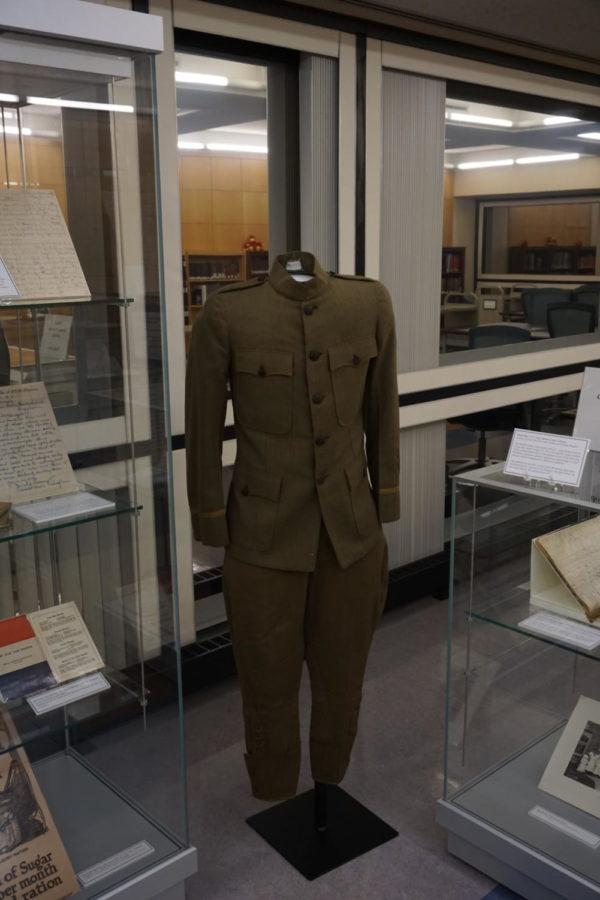New Special Collections exhibit honors role of black Iowans in WWI
January 17, 2018
Iowa State’s latest special collection- “‘Do[ing] Their Bit:’ Iowa’s Role in the Great War” is being displayed at 403 Parks Library and the Special Collections Reading Room.
The collection’s reception invited Executive Producer Jack Lufkin and Director Mark Heggen of the documentary “Deeds Not Words” as the event speakers.
While black Americans entered the draft, a segregated and racist white-dominated society purported only white Americans possessed the character, intelligence and bravery to become officers.
The U.S. Army eventually, but reluctantly allowed for two all-black combat divisions to be led by white officers.
“Deeds Not Words” shows how black soldiers and doctors continued to serve the country despite the disapproval and discrimination in the army and society at-large. This film was made for the Fort Des Moines Museum and Education Center.
Lufkin and Heggen discussed the challenges they faced in the process of making this film.
“For a museum, visitors start to see a little video. It’s usually about five or six minutes,” Lufkin said. “I broke the rule, because it’s 15 minutes. It was 20 before in the cutting room, that’s dreadful.”
Because they had to cut out a lot of valuable and educational information, Heggen introduced a website for people to study by themselves and recommended a film for audience members to watch.
“It’s a movie Frank Capra did called ‘The Negro Soldier.’ It was financed by the government, so it’s a public domain,” Heggen said. “He goes through the entire history of black in the military in the first half of the film. It’s a great source to look at. You can find it on archive.org.”
“Deeds Not Words” is free to the public on Youtube.
The special collection also features photographs, war artifacts and documents, posters and letters. The exhibit highlights Iowa’s people and institutions who worked to further the cause of victory, including the work of Iowa State’s Student Army Training Corps, its faculty, students and alumni who fought and served in France.
In addition, pieces from many of the collections are items from the Iowa State Textiles and Clothing Museum and reproductions from the State Historical Society of Iowa and Cornell University.

















